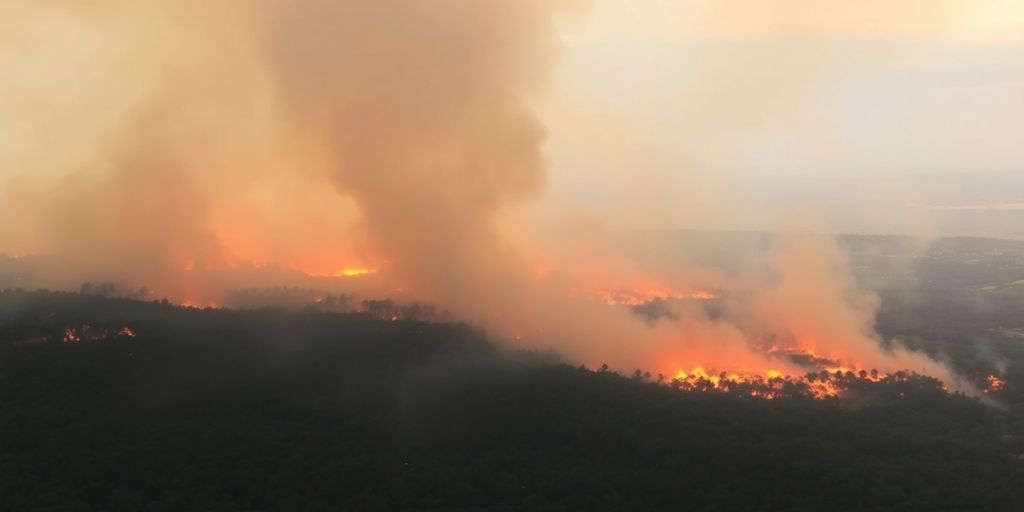The Balkans are currently grappling with a severe heatwave, leading to record-breaking temperatures and a surge in wildfires across the region. This extreme weather is significantly impacting daily life, disrupting tourism, and posing challenges for outdoor labor. Authorities are urging residents to take precautions as the heatwave is expected to persist.
Record-Breaking Heat Grips the Balkans
Temperatures across the Balkan Peninsula have soared, with some areas experiencing the hottest days since measurements began in the 19th century. Meteorologists forecast highs reaching 40 degrees Celsius (104 degrees Fahrenheit) and even higher in the coming days. This intense heat has prompted health authorities to advise residents to stay in shaded or air-conditioned areas and to drink plenty of fluids to prevent dehydration. The prolonged drought conditions accompanying the heatwave also raise concerns about potential impacts on agricultural harvests.
- Record Temperatures: Several Balkan countries have reported unprecedented heat levels.
- Health Advisories: Citizens are urged to stay hydrated and avoid prolonged sun exposure.
- Drought Concerns: The dry conditions threaten crop yields.
Wildfires Rage Amidst Scorching Conditions
The extreme heat has fueled a significant increase in wildfires across the region. Countries like Bulgaria, North Macedonia, Albania, and Serbia are battling numerous blazes, some of which have impacted residential areas and natural parks. Firefighting efforts are underway, but challenging conditions, including strong winds and dry vegetation, are exacerbating the situation. In Bulgaria, a large wildfire near Kostinbrod required extensive firefighting resources, damaging several properties. North Macedonia is facing multiple active wildfires, with local authorities citing a shortage of personnel and equipment.
Impact on Tourism and Labor
The heatwave is forcing significant adjustments for both tourists and laborers. In Greece, outdoor workers such as couriers and construction workers have been ordered to pause their activities during the hottest parts of the day. Popular tourist attractions, like the Acropolis in Athens, have implemented temporary closures during peak heat hours to protect visitors. Many tourists are seeking refuge in cooler mountain resorts or indoor, air-conditioned spaces. In Montenegro, coastal areas have seen fewer visitors as people opt for higher-altitude destinations. The disruption extends to transportation, with storms following the heatwave causing damage and temporary disruptions in some areas, such as Split, Croatia.
Regional Response and Outlook
Authorities across the Balkans are implementing measures to mitigate the effects of the heatwave and wildfires. These include public health warnings, temporary work restrictions, and the deployment of emergency services. While some areas experienced severe storms and hail following the intense heat, bringing temporary relief, the underlying conditions of extreme heat and drought persist in many parts of the region. Experts suggest that such extreme weather events are becoming more frequent and intense, potentially linked to climate change.
Sources
- Balkans braced for record-breaking heatwave, Reuters.
- Wildfires Sweep Bulgaria and the Balkans Amid Scorching Heatwave – Novinite.com, Novinite.com.
- Tourists and laborers seek respite as Greece and Balkans gripped by heatwave, eKathimerini.com.
- Storms and fires hit Balkan countries following a period of extreme summer heat, AP News.






